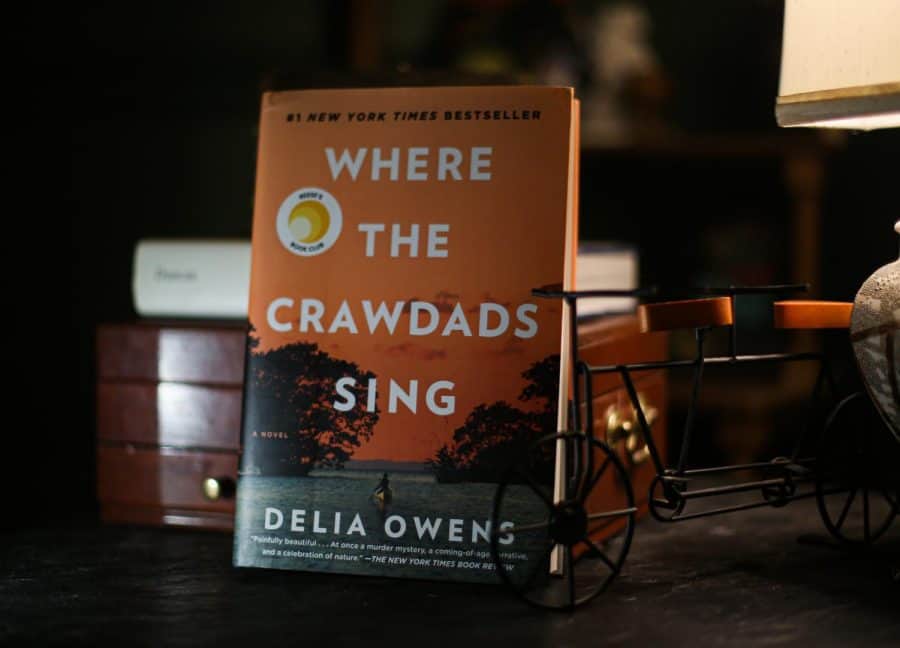The New York Times didn’t ask my opinion: Where the Crawdads Sing
October 11, 2019
“The New York Times didn’t ask my opinion” is a regular column reviewing New York Times Best Sellers.
Delia Owens’ first novel, Where the Crawdads Sing, became an instant classic upon its release, spending weeks at the top of the New York Times Best Seller list and only just recently having been dropped down to a #3 spot. It’s no surprise either: Owens, historically a nonfiction nature writer, has given us everything we could want in a book. A romance-filled coming-of-age story. A small-town murder mystery. And a beautiful, sometimes achingly so, account of North Carolina’s coastal marshes.
Where the Crawdads Sing follows the life of Kya, a girl growing up in the mid-20th century off the coast of North Carolina. From the start of the book, it is clear that Kya’s life will yield challenges: her mother abandons her to an abusive and absent father; her family is extremely poor, living in a decrepit shack in marshland; and people in her small town of Barkley Cove treat her as a social pariah, only knowing her as “Marsh Girl.”
When the town’s former star quarterback, Chase Andrews, turns up dead one day, all of Barkley Cove assumes Kya is responsible. Told in a narrative switching between the story of Kya’s childhood and the present-day murder case, Owens weaves a keep-you-guessing tale in which the more you know Kya, the more you question whether or not she killed Chase.
The story moves seamlessly between long, poetic descriptions of Kya’s relationship with the marsh that becomes her home over the years and the murder trial that leaves the reader fighting not to skip ahead to find out what the next piece of evidence will be.
Even without the exciting plot and cast of characters that you not only find yourself rooting for but feeling as if you know personally, the language and writing in and of itself is enough to make this novel fantastic.
Though it takes a while for the excitement to really pick up, Owens prioritizing not only explaining Kya’s unique upbringing but also writing an ode to the landscape Kya lives on immerses the reader fully in the real small-town drama. Without knowing the true story, the reader is forced to struggle against a community that has hated Kya her entire life and thinks she is entirely to blame for the death of a beloved town member.
Unfortunately, Owens didn’t deliver the perfect book – which is especially disappointing, because I think it could’ve gotten pretty close. This book is not the typical New York Times Best Seller. It is poignant. The characters are real enough to break your heart.
The writing is breathtaking at times, but the ending is Hollywood. Everything was wrapped up a little too neatly and unrealistic.
Would I recommend it? Yes. I am desperate to have everyone I know read it, to cry, laugh and feel every bittersweet moment Kya experiences. But, it could’ve been better.
Grade: A










